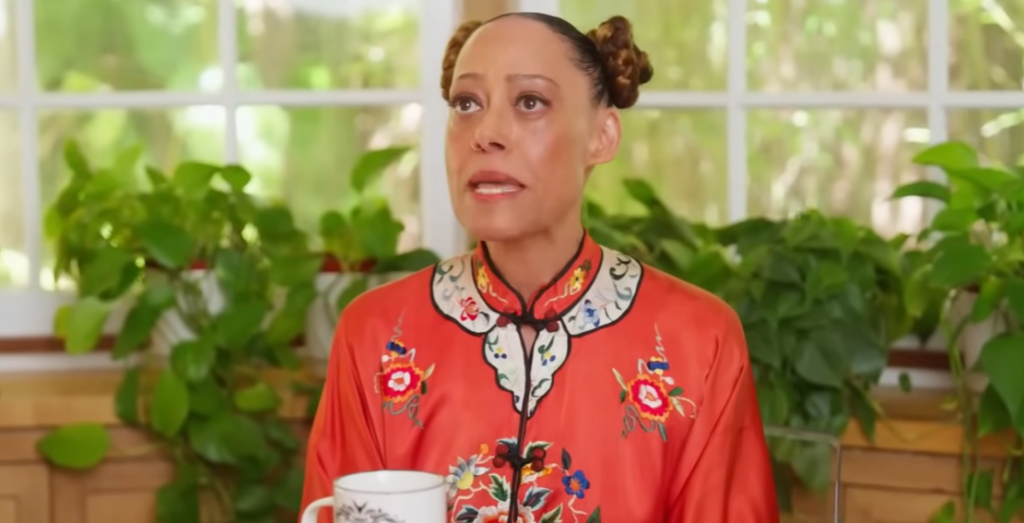Cree Summer’s distinctive, audacious, and instantly identifiable artistic voice did not develop by accident. Her parents, Lili “Red Eagle” Francks and Don Francks, provided a foundation that was deeply culturally rooted, politically conscious, and creative. Cree were exposed to storytelling in its most unadulterated and profoundly expressive forms while growing up surrounded by music, movement, and meaningful resistance. Her mother, a Plains Cree dancer and activist, and father, a white Canadian actor and jazz musician, taught her to be heard as well as to speak.
Iron Buffalo, whose real name was Don Francks, infused everything he touched with a cadence reminiscent of jazz. He embodied a free-spirited defiance that permeated both his personal life and his performances in the numerous films and television shows he starred in. Lili Francks instilled in her daughter a sense of purpose that went far beyond the script, as she proudly embraced her Indigenous identity. As parents, their collaboration was purposeful and based on artistry, cultural survival, and visibility rather than being performative.
Cree Summer – Bio, Family & Career Highlights
| Attribute | Details |
|---|---|
| Full Name | Cree Summer Francks |
| Date of Birth | July 7, 1969 |
| Birthplace | Los Angeles, California, USA |
| Raised In | Saskatchewan & Toronto, Canada |
| Parents | Don Francks (Actor/Musician), Lili “Red Eagle” Francks (Dancer/Activist) |
| Cultural Heritage | Plains Cree First Nation (Maternal side) |
| Sibling | Rainbow Sun Francks (Actor, Former VJ) |
| Voice Roles | Elmyra Duff, Susie Carmichael, Princess Kida, Foxxy Love |
| Notable Series | A Different World, Rugrats, Drawn Together, Atlantis: The Lost Empire |
| Reference | Wikipedia – Cree Summer |
Cree was already assimilating the storytelling rhythm her parents had taught her by the time she voiced Penny on Inspector Gadget. Don was more than just a co-star; he was a constant presence, demonstrating through his actions that art could and should challenge systems. Don also provided the voices of several characters on that same show. Lili, on the other hand, provided spiritual and ancestoral memory to anchor Cree’s early experiences. Cree became known for striking a balance between experimentation and groundedness.

Being a Plains Cree woman, her mother’s identity provided Cree with more than just cultural background; it also gave her a strong sense of self. Lili’s presence gave Cree a model for resiliency, especially in the late 1980s and early 1990s when there were few genuine representations of Indigenous voices in the mainstream media. Later, Cree would embody this not only in her iconic roles but also in her refusal to accept tokenizing or disingenuous roles and her demand for genuine representation.
Cree were particularly noticeable in interviews and social panels during the pandemic. She talked candidly about the spiritual and artistic abundance she inherited, comparing her mother’s laughter to a drumbeat and her father’s voice to a saxophone. These statements weren’t metaphors; rather, they reflected her upbringing, which viewed identity and sound as vibrational forces that had the power to alter a space.
Cree used this artistic legacy to craft a career that has held up remarkably well. In addition to being incredibly clear in its scope, her resume, which includes over 300 voice roles, effectively conveys her values. From Princess Kida’s wild strength to Susie Carmichael’s intense compassion, Cree represented role models for kids. A lot of them sang. They were all deliberate in their speech.
Cree’s history has felt remarkably relevant in recent years, especially with the renewed discussions about representation. Cree has been telling diverse stories for decades, unapologetically and creatively, while many in Hollywood are still learning how to do so. Her voice acting endeavors and work at Abbott Elementary show that this momentum hasn’t diminished but rather grown.
She has made calculated decisions to guarantee that her career develops without ever losing her identity. In a field where personal truth is frequently sacrificed for reinvention, that strategy—which is based on the lessons Don and Lili taught—remains especially novel. Cree is still singing, acting, and voicing characters, but most importantly, she is still carrying on her parents’ flame.


